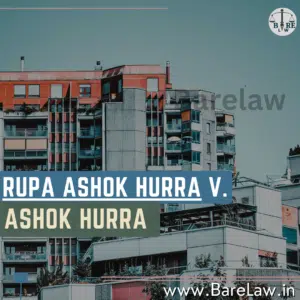Simplifying Your Life & Law | Legal Drafting services

INTRODUCTION
India is a secular and diverse nation. Article 25 to 30 of the Indian Constitution, entitled the freedom of religion to its citizens. The Indian Penal Code deals with offences related to religion under Chapter XV. Insulting or disrespecting another religion in any way is an offence under IPC. Chapter 15 of the Indian Penal Code contains five sections dealing with the offences relating to religion. These are enumerated below-
(1) Section 295- Injuring or defiling places of worship or objects of veneration.
(2) Section 295A – Injuring or insulting religious sentiments
(3) Section 296 – Disturbing religious activities and assemblies.
(4) Section 297 – Trespass on burial places
(5) Section 298 – Uttering offensive and insulting words about one’s religion.
SECTION 295
Section 295 of the Indian Penal Code lays down that whoever defiles a place of worship by causing damage to such place a diminishing any sacred object like holy books, Trishul, idol, kripan etc. with an intention to insult such religion, shall be imprisoned with a term extending up to 2 years, or fine or both.
What are the main ingredients to convict a person under section 295 IPC?
(1) Mens rea- The offence must be committed with an intention to insult such religion or with the knowledge that such an act can cause a reasonable person to consider such an act as an insult to his religion.
(2) Actual Damage- Some destruction, damage or defilement should actually occur at the place of worship or to some object considered of religious importance.
SECTION 295 A
Section 295 of the Indian Penal Code prescribes the punishment for insulting for outraging the religious sentiments of any class of persons. Section 295 A came into existence in the year 1957 after it was introduced by section 2 of the criminal law amendment act 1927. This act was introduced to punish those who committed the offences with malicious intentions.
This section provides that any person who deliberately insults or attempts to insult the religious sentiments of any class of persons by words, signs or any visual representation, shall be punished with imprisonment extending up to three years or fine or both.
What are the main ingredients to convict a person under section 295A IPC?
(1) Mens rea – the insult must be deliberate and backed with malicious intentions.
(2) Actual damage – the religious sentiments of a class of persons must be insulted or an attempt to insult must be present.
(3) Such insult should be by words, signs or any visual representations.
SECTION 296
Section 296 of the Indian Penal Code provides that any person voluntarily and maliciously disturbing any class of people gathered lawfully to perform any religious activities or assemblies, shall be punished with imprisonment extending up to one year per fine or with both.
Examples of religious assemblies under this section are Char Dham Yatra, Nagar Kirtans, Muharram, Langar etc.
What are the essential ingredients to convict a person under section 296 IPC?
(1) Mens rea- the disturbance caused must be voluntary and deliberate.
(2) Religious Assembly – the disturbance caused must be caused to a religious assembly.
(3) Lawful – the religious activity, ceremony or assembly must be lawfully engaged.
SECTION 297
Section 297 of the Indian Penal Code provides that commits a trespass to the places that are considered sacred as a place of worship for funeral rites or disturbs or attempts to disturb a group of people performing funeral rites, shall be punished with imprisonment extending up to one year or fine or with both.
What are the essential ingredients for a person to be convicted under section 297 IPC?
(1) Mens rea- The offence must be committed with an intention to insult such religion or with the knowledge that such an act can cause reasonable person to consider such an act as an insult to to his religion.
(2) Actual Damage- some act of trespass, insult or disturbance must have taken place.
(3) the place trespassed must be a place of worship, burial ground, a place for funeral rites or ceremonies etc.
SECTION 298
Section 298 of the Indian Penal Code provides that deliberately and maliciously hurts the religious sentiments of a person by uttering offensive words in the hearing capacity of that person, makes some sounds in the hearing of that person or makes any gesture in the sight of that person to deliberately wound his the religious sentiments, shall be punished with imprisonment extending up to one year fine or with both.
What are the essential ingredients to convert a person under section 298 IPC?
(1) Mens rea – the act was committed deliberately with malicious intentions.
(2) Actual damage- the accused has actually uttered some words or sounds, made any gesture or placed any object before that person.
(3) Motive – the motive of the accused was to hurt or wound the religious feelings of that person.
Conclusion
India has no religion of its own, and the offences related to religions are subject to punishment under the Indian Penal Code. Chapter XV deals with such offences under sections 295 to 298. It is the duty of our justice system to uphold the religious freedom of every citizen of India.
You may also like to read:
-
10 Jul 2021 Know Your LawCulpable Homicide and Murder
-
21 Jun 2021 Know Your LawVOYEURISM
-
14 Jul 2021 Know Your LawDifferences between plea bargaining and compounding of offenses
-
02 Oct 2021 Case BriefsCase Brief on Rupa Ashok Hurra v. Ashok Hurra Writ petition (civil) 509 of 1997
-
11 Aug 2021 Know Your LawRight of Private Defence
-
23 Aug 2021 Know Your LawAdultery





